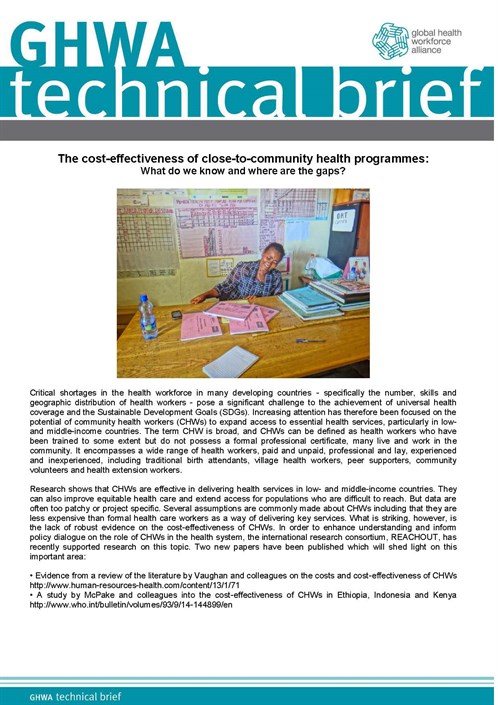
The cost-effectiveness of close-to-community health programmes: What do we know and where are the gaps?
Research shows that Community Health Workers (CHWs) are effective in delivering health services in low- and middle-income countries. They can also improve equitable health care and extend access for populations who are difficult to reach. But data are often too patchy or project specific. Several assumptions are commonly made about CHWs including that they are less expensive than formal health care workers as a way of delivering key services. What is striking, however, is the lack of robust evidence on the cost-effectiveness of CHWs. REACHOUT and the Global Health Workforce Alliance (GHWA) have recently supported research on this topic and this brief summarises the findings of two new papers:

This project is funded by the European Union.
